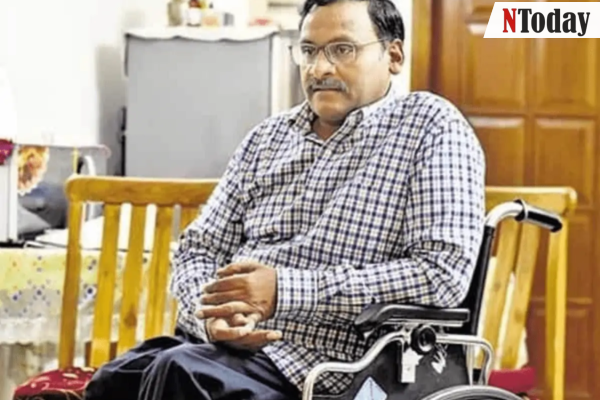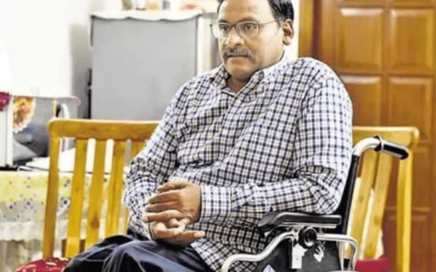Nagpur: The Nagpur Bench of the Bombay High Court on Tuesday acquitted former professor of Delhi University GN Saibaba, who was arrested for suspected Maoist links, and other co-accused persons and allowed their appeals against convictions.
The Naxal sympathizer GN Saibaba and his four accomplices were sentenced to life imprisonment by the Gadchiroli Sessions Court under the stringent Unlawful Activities (Prevention) Act (UAPA) for allegedly aiding and abetting Naxal activities and waging war against the nation.
A division bench of Justice Vinay G Joshi and Justice Valimiki SA Menezes had concluded the hearing and reserved its verdict in September last year, following directions from the Supreme Court.
The appeals were filed by Saibaba, Mahesh Tirki, Hem Mishra and Prashant Rahi, who were sentenced to life imprisonment and Vijay, who was sentenced to 10 years in jail by a special court in 2017. While Vijay Tirki was out on bail, Narote passed away in jail last year after he was infected with swine flu.
The judges cited police failure to ensure prior sanction for the arrest and prosecution of the Delhi University professor under Section 45(1) of the UAPA from the Maharashtra Government’s Home Department.
“We hold that the proceedings in sessions trials 30/2014 and 130/2015 are null and void in the absence of valid sanction under Section 45(1) of the UAPA,” the High Court said.
The bench ordered the acquittal of accused 1 – Mahesh Kariman Tirki, accused 3 – Hem Keshavdatta Mishra, accused 4 – Prashant Rahi Narayan Sanglikar, accused 5 – Vijay Tirki, and accused 6 – Saibaba from all the charges.
Accused 2 – Pandu Pora Narote expired during the trials after contracting swine flu. All accused were instructed to execute a bond of Rs 50,000 each with surety of a like amount, to the satisfaction of the trial court, in compliance with the provisions of Section 437-A of the Code of Criminal Procedure, 1973.
On March 7, 2017, then Principal District and Sessions Judge Suryakant Shinde at the Gadchiroli court had convicted all of them under Sections 13, 18, 20, 38, and 39 of the UAPA and Section 120-B of the Indian Penal Code, for their alleged links with Maoists and involvement in anti-national activities. It was a landmark judgment at that time, as all accused were convicted purely on the basis of electronic evidence for the first time in Maharashtra.














